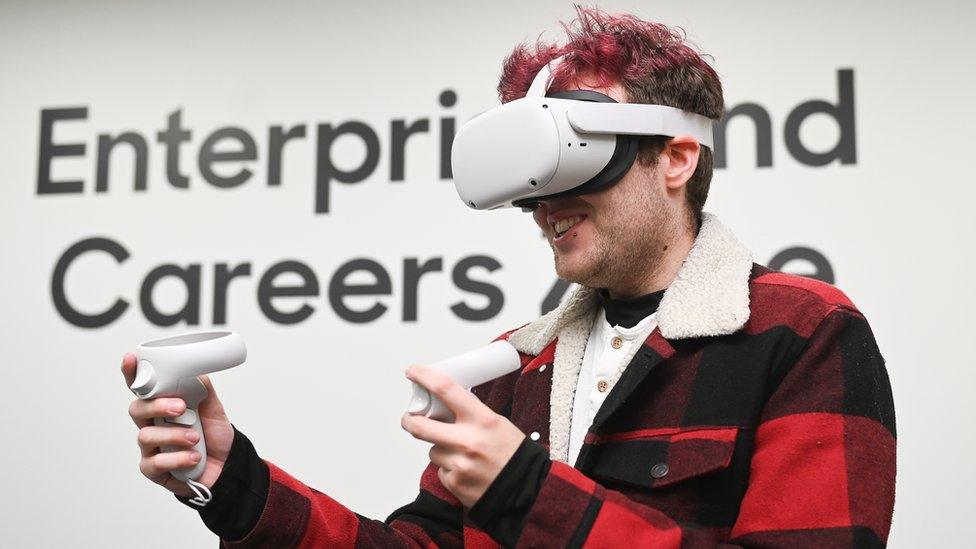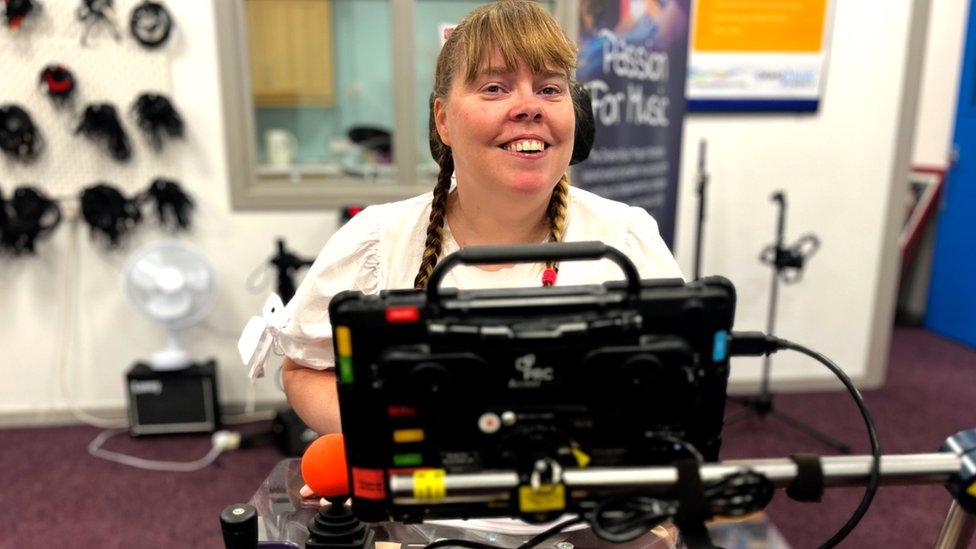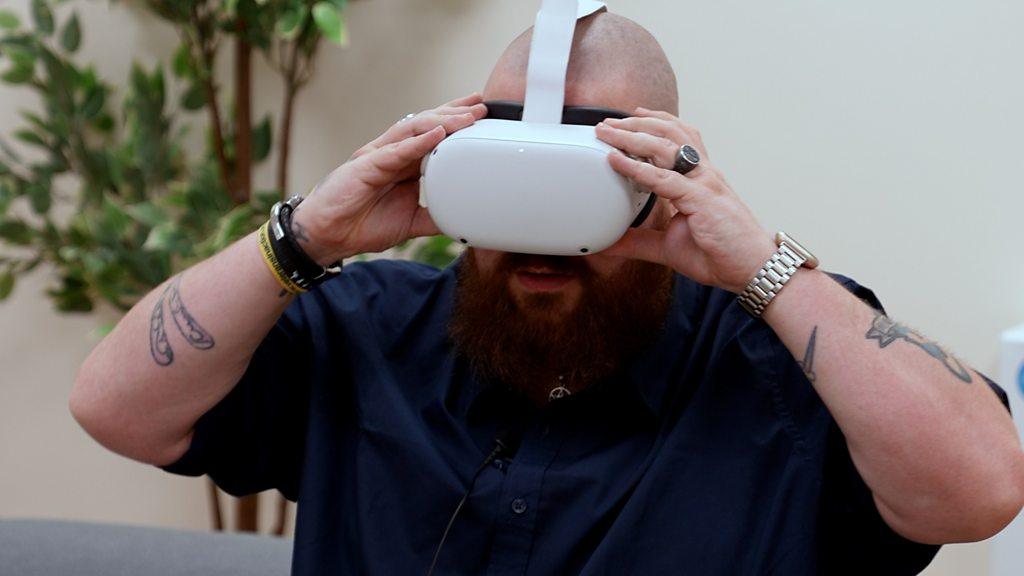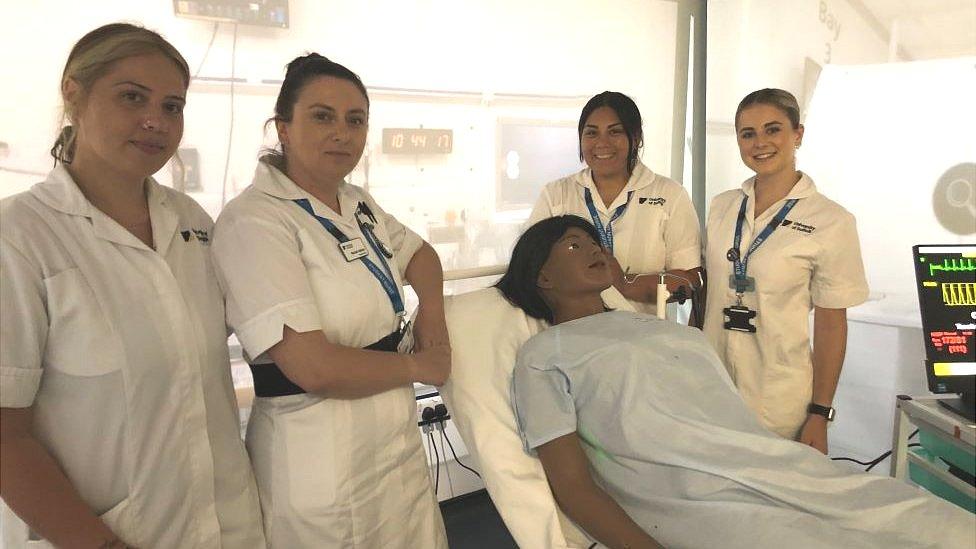University of Suffolk joins transatlantic virtual reality scheme
- Published

Student Conor O’Leary said using the headsets had helped him hone his presentation and interview skills
A university has been selected to take part in a transatlantic research project using virtual reality (VR) to help young people develop soft skills.
The University of Suffolk is joining the project, launched by Carnegie Mellon University and Bodyswaps, a soft skills training platform.
Students will use VR to improved skills such as public speaking and job interviews.
The university is to receive two more VR headsets as part of the project.
It is one of 25 business schools in the UK and US joining the scheme.
The university started using VR headsets in spring last year.
University staff say the headsets have allowed less confident students to practise giving a presentation or being interviewed for a job,
The six-month project is due to start at the end of the month.
The project means the university will be able to expands its modules to include customer service, equity, diversity and inclusion, leadership, management and healthcare.
Amy Carpenter, its head of careers, said: "Embracing VR technology has been a great way of developing the soft skills of our students who need more support."
Conor O'Leary, who studies computing, said: "I found using the Bodyswaps technology to be really useful and it has helped me hone my skills in presentations and interviews, which will be invaluable for the future."

Follow East of England news on Facebook, external, Instagram, external and X, external. Got a story? Email eastofenglandnews@bbc.co.uk, external or WhatsApp 0800 169 1830
Related topics
- Published2 November 2023

- Published12 September 2023

- Published30 June 2023
